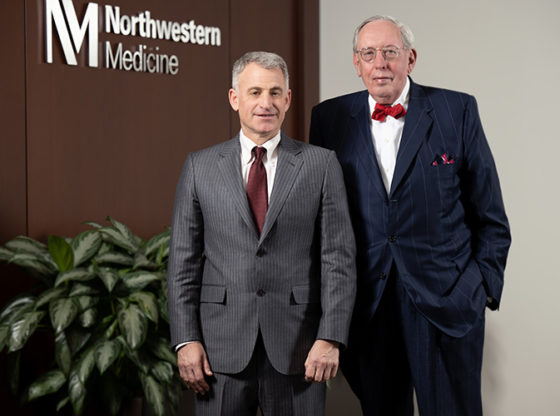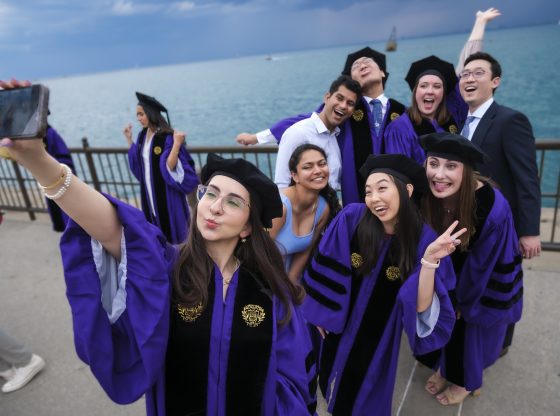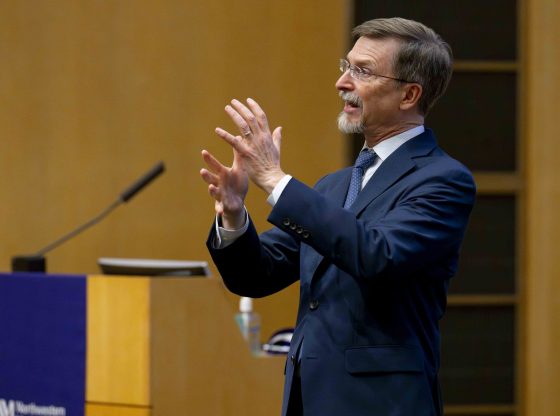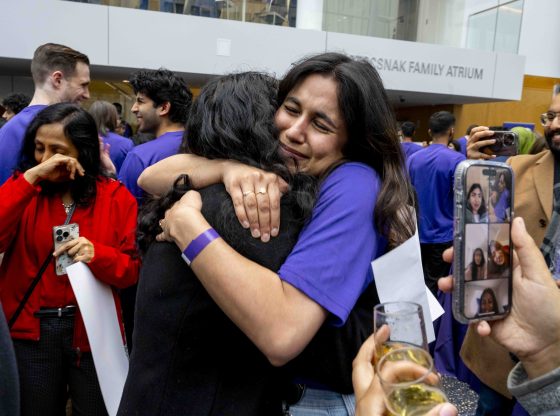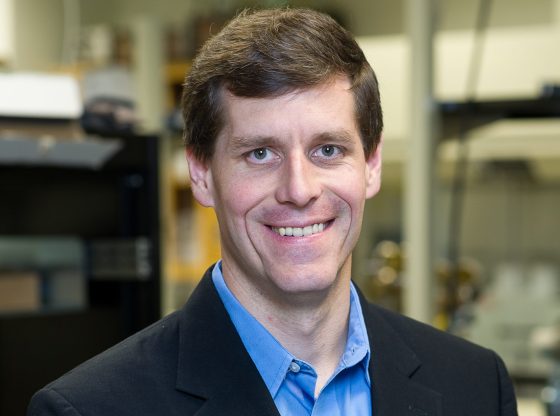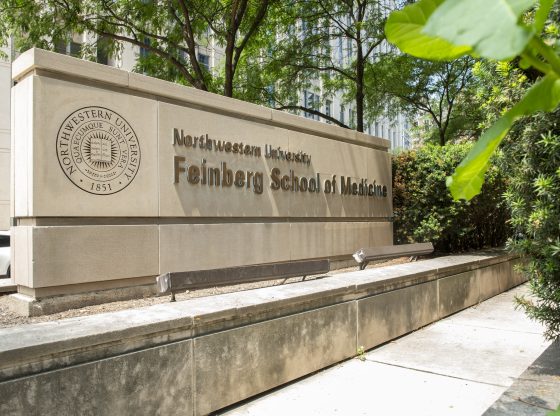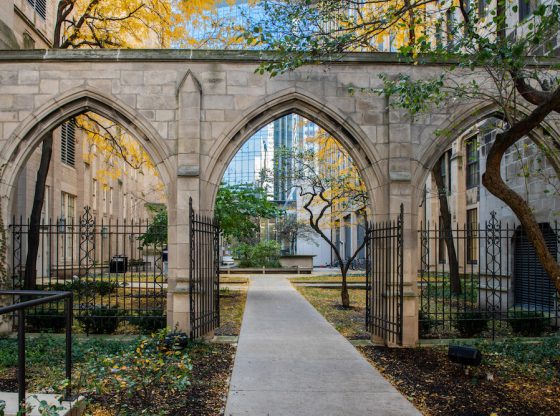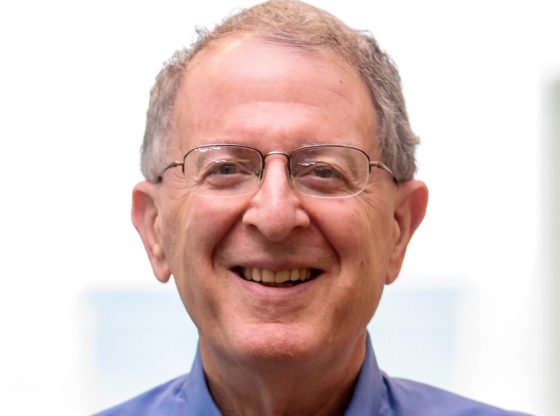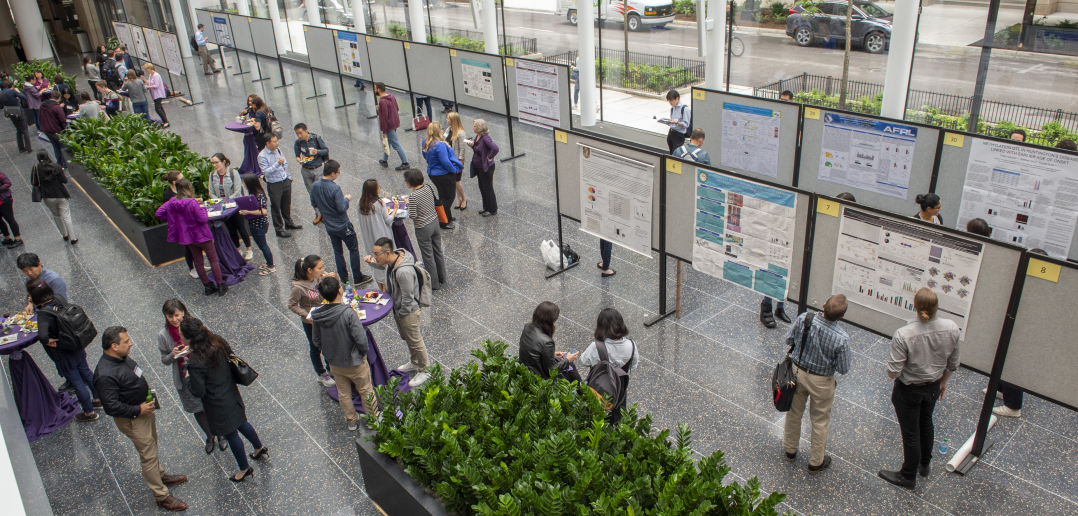
Feinberg recently welcomed some of the biggest names in science to campus, partnering with Nature Genetics and Nature Medicine to host the Chicago Science 2019: Epigenetics and Genome Editingconference.
The conference, held June 12 through 14, was one of the first events hosted at the Louis A. Simpson and Kimberly K. Querrey Biomedical Research Center. Both leaders in the field and young investigators gathered to learn the nuts and bolts of gene regulation, and find out how to use new tools that will fuel the next generation of epigenetic discoveries.
Eric G. Neilson, MD, vice president for medical affairs and Lewis Landsberg Dean, welcomed more than 160 attendees to the conference and to the new building.
“I’m really glad all of you could be here today, participating in this important subject,” Neilson said. “This building is a lovely structure, emblematic of the future of science in Chicago and at Northwestern, and we intend to make our efforts here world-class.”
Kicking off the conference was George Church, PhD, professor of Genetics at Harvard Medical School, who delivered a keynote presentation about a new method to edit the genomes of multiple cells at once, using a new kind of CRISPR-Cas9 editing.
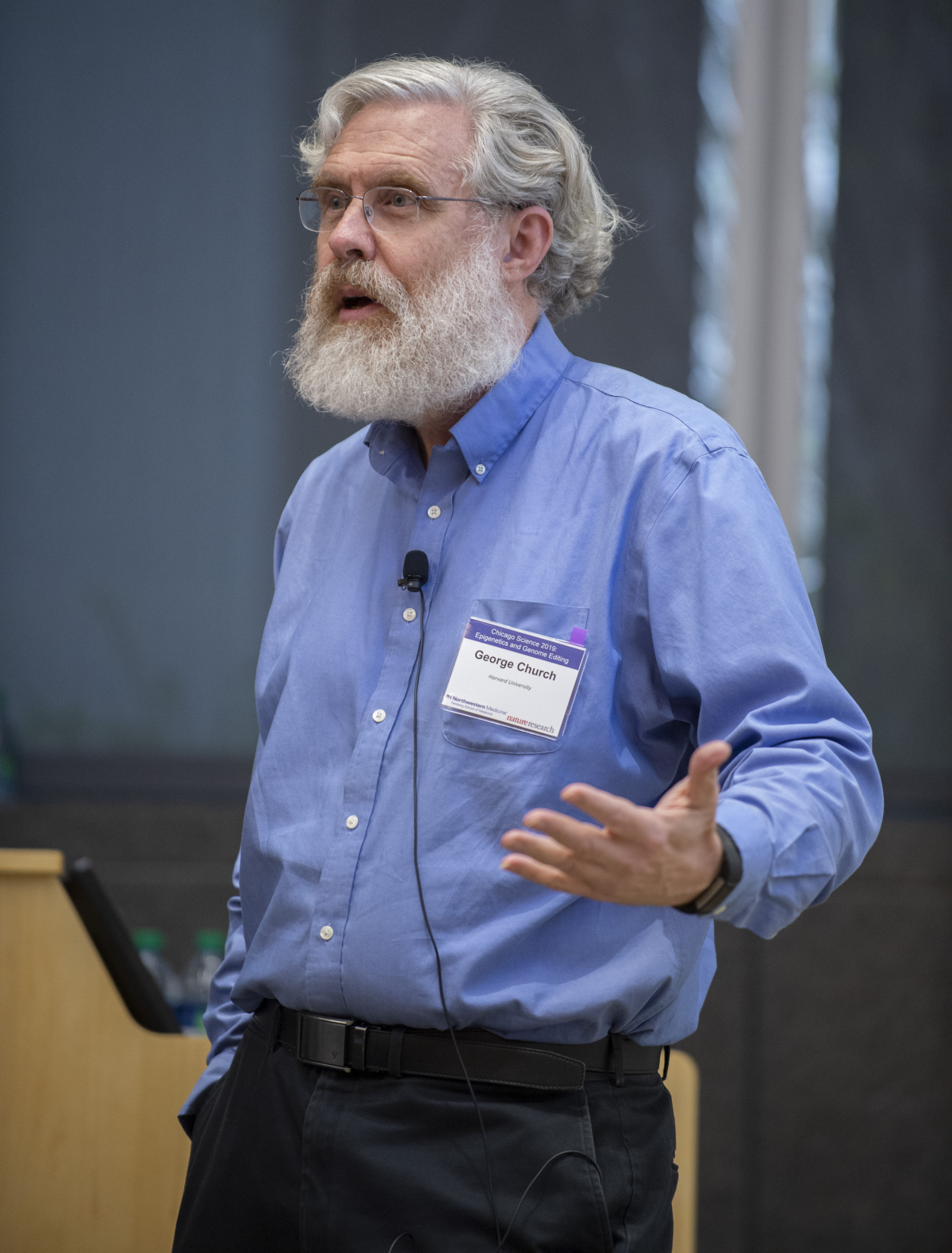
In traditional CRISPR editing, the DNA is cut with “molecular scissors” at a specific site, enabling scientists to switch genes off or insert new sequences. With this new method, called multiplex editing, investigators can simply swap one codon for another, for example, turning C and G pairings into T’s and A’s. This is both cheaper and more efficient for editing multiple genes at once, Church explained.
“It’s not automation or parallelization of processes, as you might think — we could fill up this room with sequencing devices and it doesn’t save money,” Church said. “What saves time and money and allows us to do new things is if we could put a hundred to a trillion different reactions in a droplet, and these reactions can evolve through molecules, cells and so on.”
This is another step towards large-scale genome editing, according to Church, who envisions genetically engineered cells that could resist viral infections, or modified animal organs for transplantation into humans, which could help alleviate the longstanding problem of transplant organ shortage.
“We’re excited about this because it allows us to get at the transplant patient crisis: There are people who aren’t even on the list because they know they’ll never get the organ before they die,” Church said. “It also could allow us to get organs that are better than organs you can get from humans, engineering pathogen resistance, cancer resistance — there’s even some research about engineering cells resistant to senescence.”
After Church’s presentation, there was a reception and poster session featuring work from graduate students and junior faculty from across the country.
The next morning, Ali Shilatifard, PhD, chair of Biochemistry and Molecular Genetics and director of the Simpson Querrey Center for Epigenetics, highlighted how the field has changed since his original discovery of gene transcription’s role in cancer more than 20 years ago.
“My main interest in the lab for the past 25 years was the process of regulation and gene expression,” Shilatifard said. “Now can we can take advantage of the awesome power of genetic chemistry in an organism to address the question: why does translocation cause leukemias?”
The conference concluded with a keynote presentation by Eric Olson, PhD, professor and chair of Molecular Biology at the University of Texas Southwestern.
Other Feinberg participants in the conference include Alfred George, Jr., MD, chair and Magerstadt Professor of Pharmacology; Dimitri Krainc, MD, chair of the Ken & Ruth Davee Department of Neurology, the Aaron Montgomery Ward Professor and director of the Center for Neurogenetics; Elizabeth McNally, MD, PhD, the Elizabeth J. Ward Professor of Genetic Medicine and director of the Center for Genetic Medicine.
Shilatifard is also a member of the Robert H. Lurie Comprehensive Cancer Center of Northwestern University.

